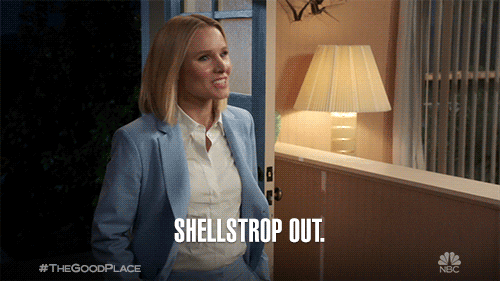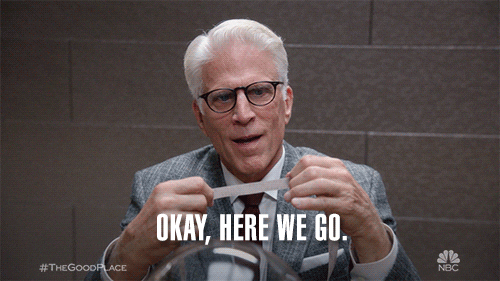NYC City Council Introduces Bills to Help Food Delivery Workers
The package focuses on earnings, bathroom access, necessary equipment, and distances traveled
Earlier this week, THE CITY reported that a package of City Council bills from Carlina Rivera (D-Manhattan), Justin Brannan (D-Brooklyn) and Carlos Menchaca (D-Brooklyn) could bring much needed relief and better conditions for food delivery workers.
The package, consisting of four bills, were introduced today (Thursday) to the Committee on Consumer Affairs and Business Licensing, and each focusing on one of four key points: pay minimums, bathroom access, insulated delivery bags, and route limits. These bills are fairly straightforward to parse, as they are proposals to add a new subchapter (Subchapter 8) to Chapter 12 of title 20 of the administrative code of NYC, as opposed to amendments to current laws.
Minimum Per Trip Payments (Int 2294-2021)
While the other bills will see its effects more quickly realized, this one will take almost a year before seeing its efforts bear fruit. Upon passing this bill into law (if it does), the city will have nine months to conduct a study to understand the working conditions for food delivery workers before making recommendations.
In order to get at establishing a method for determining the minimum payment per trip, the following aspects will be considered: “duration and distance of the trip, the mode of transportation used by the worker and the associated expenses of operation, the type of trip, including the number of separate deliveries made along a route, the adequacy of third party delivery worker income considered in relation to expenses”.
Gratuities will not be a part of the minimum payment nor will delivery services have the option to offset minimum payments by way of incorporating tips.
Even though it will be some time before earnings per trip will increase, I feel that studying and taking into account all the factors above will provide the rebuttal that delivery platforms need to hear.
I suspect that consumers will see a rise in costs of having their meals delivered to them as large cities propose making limits on commission fees permanent. But that’s part of the problem, isn’t it? Consumers aren’t necessarily all that aware of how much their one delivery order costs everyone else in the ecosystem—if it’s overly beneficial to one party, then others end up suffering to balance out the equation.
And if you want me to paint a picture of how little a trip can garner now, here you go: it is possible to fall below $5 (and this includes gratuity) per trip with the expectation that I still travel 15+ blocks to make the delivery. And then take the assumption that each trip takes ~20 minutes to complete. At best, I can earn minimum wage in one hour if everything goes smoothly, which isn’t realistic.
Bathroom Facility Access (Int 2298-2021)
It saddens me that we have to propose a bill to make access to bathroom facilities possible for delivery workers. These are people who spend hours in the cold and heat delivering food, serving as a proxy for in-store customers. And to penalize someone that providing the connecting dots in a broken ecosystem, while earning sub-minimum wages for the most part, is deeply troubling.
Council Member Rivera’s bill is a simple quid pro quo: if you are a food service establishment that uses a platform that employees food delivery workers, the food delivery worker should have access to the bathroom when picking up an order for consumer delivery.
The notable exception to this proposal is for establishments whose bathrooms “would require a food delivery worker to walk through such establishment’s kitchen, food preparation or storage area or utensil washing area to access such facility”.
Free Insulated Food Delivery Bags (Int 2288-2021)
As I’ve pointed out in a February post, your mileage may vary when it comes to what you’re equipped with when signing up to work for a delivery platform. In the case of Uber Eats, for instance, couriers are not provided an insulated bag and Reddit members share deals and insights on which bags to purchase. Uber Eats shared a promotion to purchase a bag from their friends at Kinara for $47—but tack on $23.97 in shipping and $6.31 in taxes, and you’re at almost $80 for a work expense that will probably take almost ten trips to pay off.
The language in this proposal gets right to the point by stating that delivery workers who operate a bicycle will be provided an insulated food delivery bag. And more importantly, this food delivery bag will be provided at the expense of the delivery platform, and not the courier.
A business using a bicycle for commercial purposes, where that business is a third-party food delivery service, shall provide at its own expense or ensure the availability of an insulated food delivery bag for each of its bicycle operators. Such business may not require any of its bicycle operators to provide an insulated food delivery bag at such operator’s expense
Should this bill become law, third-party food delivery services will have 120 days to comply before the local law takes effect, so there should be no excuses on not having enough supplies to provide to workers.
Distance/Route Limits (Int 2289-2021)
When I fire up the Uber Driver app, some of the requests for jobs that I’ve received have involved me biking 80+ blocks for less than $20 (and yes, that includes tip). It takes quite some time to filter through the bulk of these long and low paid gigs, especially when they’re given to you often if your “rank” is low (Uber gamifies your status by upgrading you certain tiers if you complete enough deliveries each month).
If I can set the radius that I am willing to go on a date with someone on Hinge, why can’t I set the radius that I am willing to travel for a delivery?
This bill proposes to provide delivery workers the option to specify the maximum distance that they are willing to travel, and in the case of apps like Chowbus (which have a greater delivery radius), to note that they will not accept trips over bridges or tunnels.
More importantly, Council Members Brannan and Menchaca provide protections by stipulating that delivery platforms are not to downgrade the ratings of workers who have set distance limits, decrease the number of trips offered to them, or refuse them access to the platform.
Relevant news
The Restaurant Revitalization Fund will be open for registration beginning at 9AM ET tomorrow (Friday). Applications will be accepted starting Monday, May 3 at noon ET.
As a reminder, during the priority period, while applications will be accepted from all eligible applicants, funding will be approved for priority groups, which I noted in my previous post.







